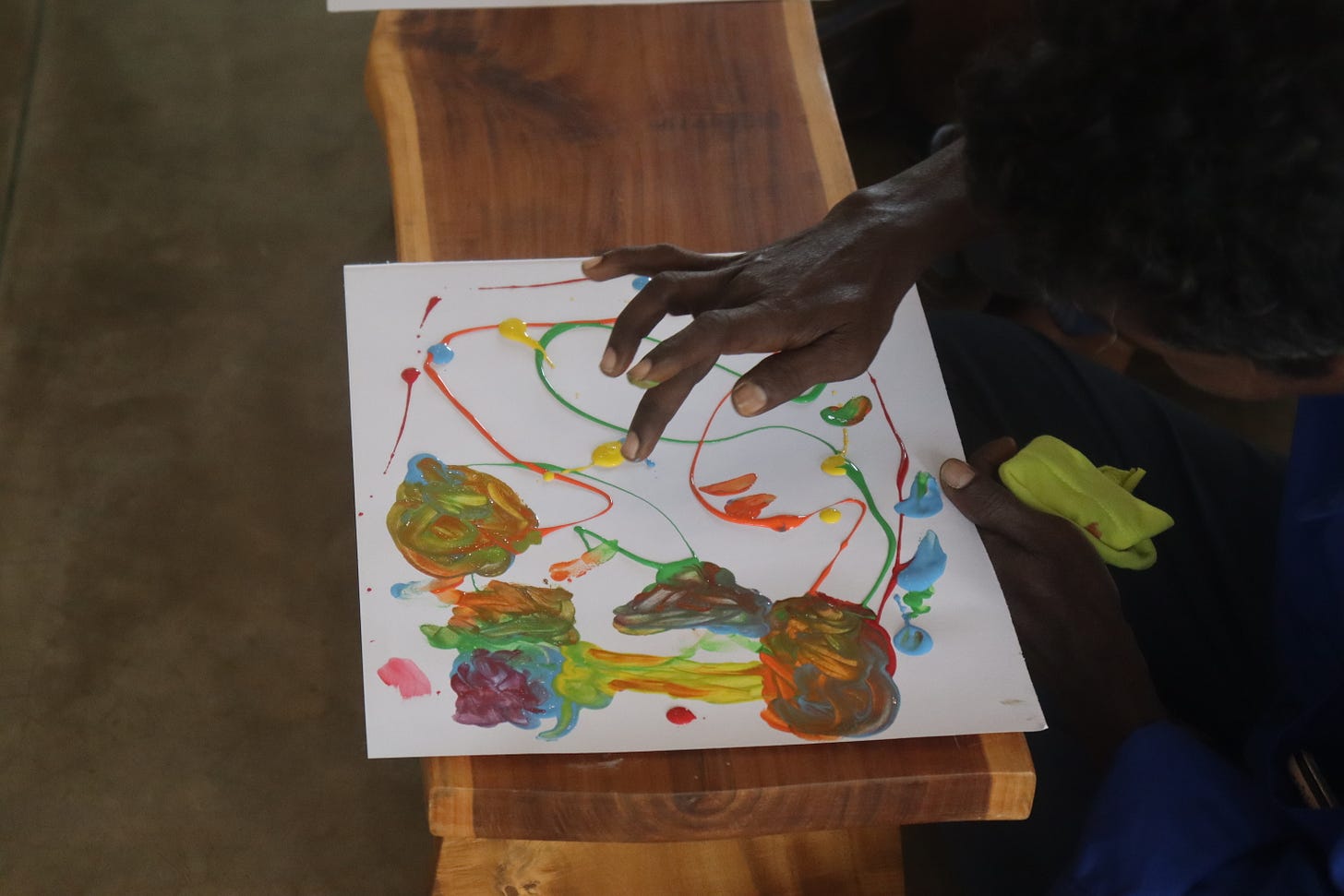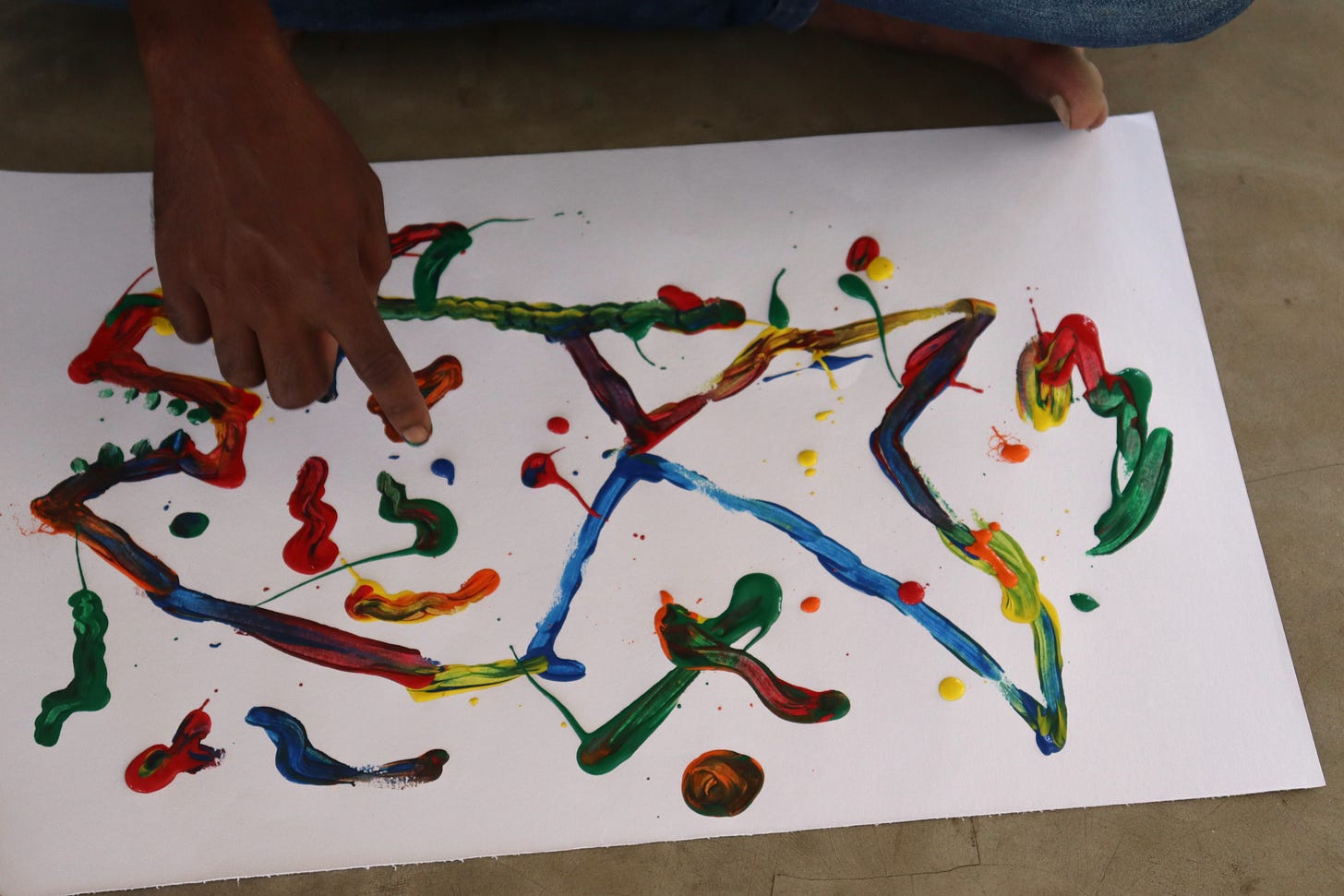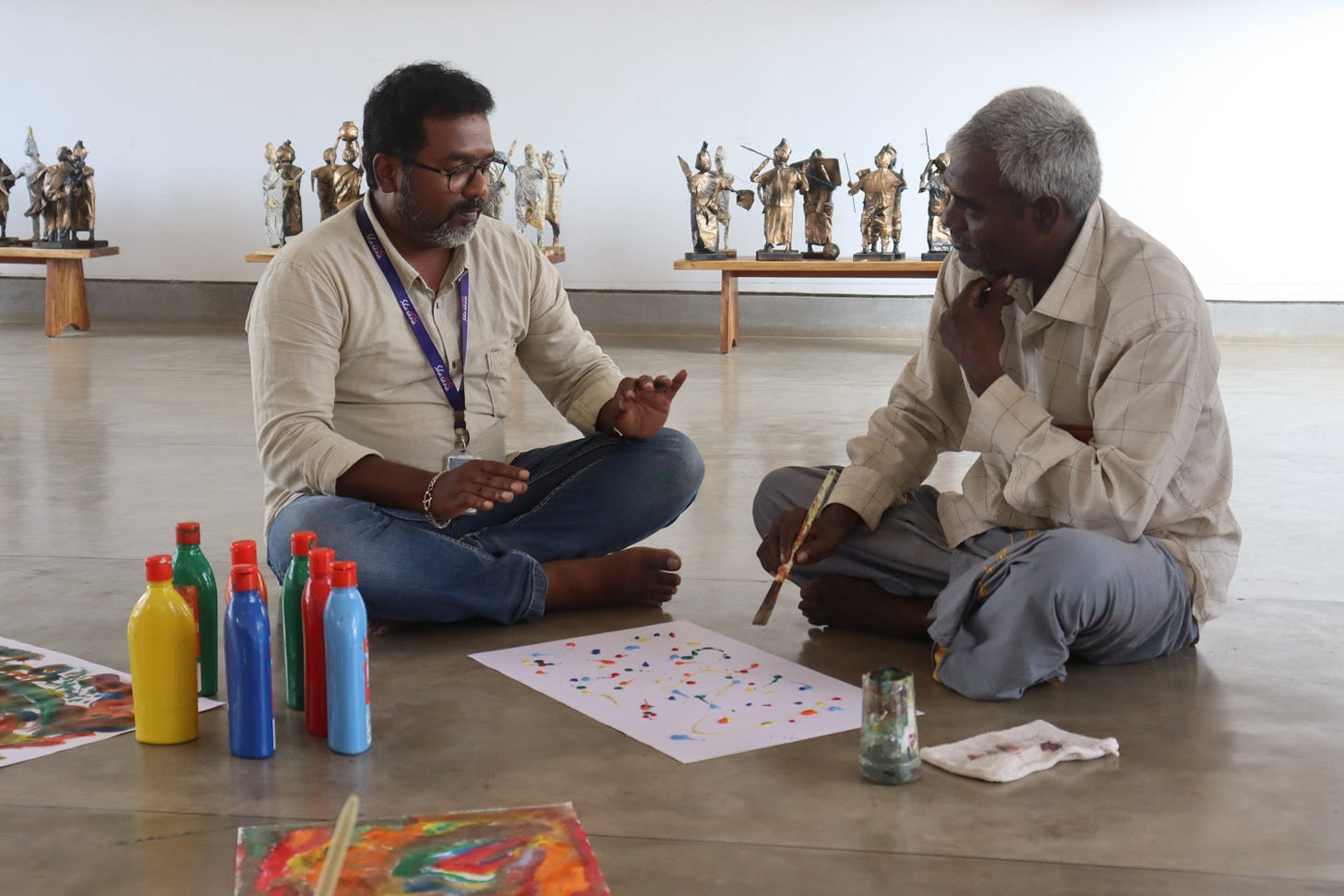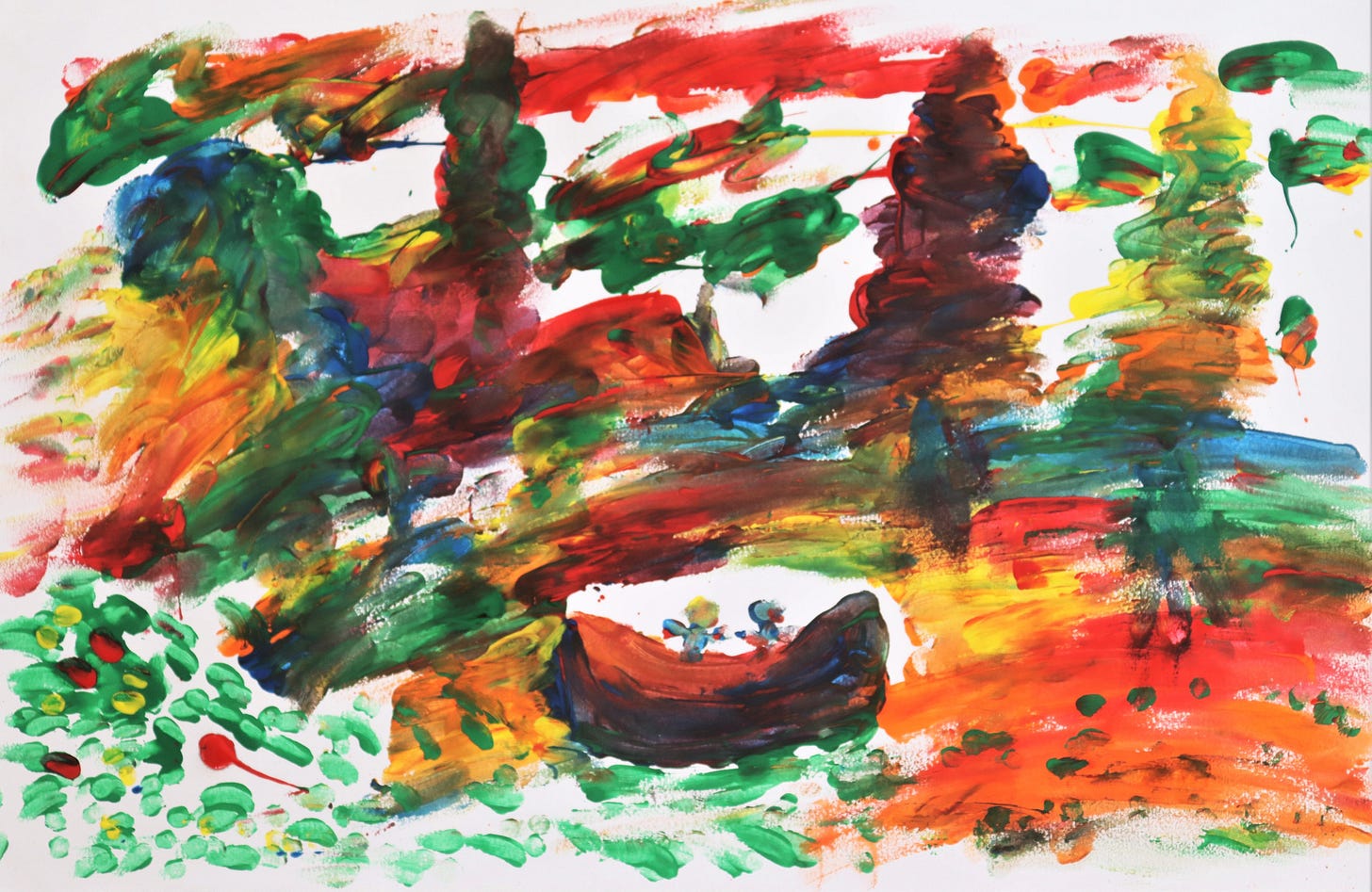“A father’s smile has been known to light up a child’s entire day.”
Susan Gale
I never saw my father smile at me. In my youth, I failed to register this then, but now, every day, I long for a vision of his smile. He has passed away, and I have never encountered him in my dreams either. I hope I see him and his smile in my dreams.
Since 2010, I have been working with children and women through Expressive Arts. But there was an emptiness in my heart. I was wondering what it was. It was like a bead missing from the necklace and that one bead was as important as the others to make the necklace beautiful.
Sharana’s interventions are focused mainly on the holistic development of underprivileged children. Most of the children’s paintings have expressions about their fathers, whatever they may be, during the expressive arts sessions. Whether they are abusive or alcoholic, the fathers remain fathers in children’s hearts.
The men have not been much involved in our interventions other than communication about the logistics of when to pick up and drop their children at our Centre. In our holistic approach, the involvement of men, particularly fathers, emerged as an area warranting attention. Their participation presented an untapped opportunity to redefine the boundaries of expressive arts. Consequently, a desire arose within me to work directly with men through expressive arts and to actively involve fathers in the creative process. The missing bead of our necklace was Fathers.
I wanted to work with the men through Expressive Arts and involve them in the process. When I conducted the first Expressive Arts session with a small group of fathers, it felt like the culmination of a dream. But to what end, one might ask.
What was it that needed to be fixed? While working with the children it was noticed that in the eyes of children, easily swayed by coarse cinema and popular culture there was an erosion of the sanctity and value of the family. Countering this wasn’t possible if signals coming from within their families did not change. What pots of paint, a blank paper, the seclusion of a private art session within the Sharana Social Centre and fingers did to the men was an unself-conscious, slow reconnect to their childhoods. While they were conditioned to be the pole of authority and have a certain gravity, the men could gradually open up.
One vocal participant who protested even as he finished the session, admitted the value of the exercise that helped him face aspects of himself that used to make him uncomfortable and self-conscious. The overriding pressure and influence of work expressed itself poignantly when a fisherman said that he only ever saw blue, the colour of his life, his means to feed his family and his relentless reality in fair weather and foul. But playing on a blank paper with strokes of reds and greens and yellows opened a door to what seemed like a new world to him.
One participant said the session made him feel that he was in the presence of God. The beauty of this was that in the chaos of colours and shapes of his finger painting, there did emerge a distinct shape of a Shiva Linga, an aniconic representation of the god Shiva.
Another used the session to just make a beautiful painting. No attempt to delve within or ponder. Just use the time to free the clutter of his mind and express beauty.
Reflecting on his experiences, he tearfully expressed a sense of longing for his father's love and affection, believing that a more nurturing relationship might have provided a foundation for a better childhood and life.
He conveyed a commitment to break the cycle, expressing a determination not to subject his children to the same hardships. He urged others to keep a watchful eye on children to prevent them from heading down a destructive path.
In one case, the results of even just a few sessions became quickly visible. A girl at Sharana would often speak to social workers about her father. He would come home drunk, and physically and verbally abuse his daughter and his wife, seemingly at the drop of a hat, she recounted through tears. When the social workers offered to intervene, she said she didn’t want her father to think she had complained against him, as she still loved him very much.

This man was one of the many who was invited to Sharana for an expressive arts session. During the session, the man was quiet and mostly listened to the others sharing. The man later went home and shared his art with his daughter, and his daughter reported to the social workers. He gradually began to stop hitting her.
The experience of expressing himself through painting had given him a taste of a childhood that he was never afforded and as a consequence a greater understanding of his daughter.
The fathers began to smile at their children, and the process continues.
Among boxes of paint, a blank piece of paper, protection from the gaze and the judgment of others we had men of different backgrounds and difficult circumstances reconnect with their childhood. What did that achieve? Hopefully, we enhanced their understanding of the value of the family. As they were growing they moulded themselves into the templates of men their fathers were. But as their children grew, it was important to do a reset of what’s precious and needs preservation, because in our times the archetypal templates in popular culture are hell-bent on questioning fundamental values of family bonds. We need more than ever to save our family units. The father in a house may well continue to be a source of love couched in authority or muted expression, but a child will always have him as her hero. A father who values his family will protect a child from feeling less about the family.
Manuel Theremand is Programme Manager and Child Protection Officer at Sharana Social and Development Organisation, Pondicherry. He is a Certified Expressive Arts Practitioner from Swahansa Expressive Arts India and European Graduate School (EGS) Switzerland. He’s passionate about initiating meaningful change through art.














This is very beautiful. Thank you Manuel.
Very nice article, Manuel. That’s powerful you work with that population, spreading kindness and awareness.